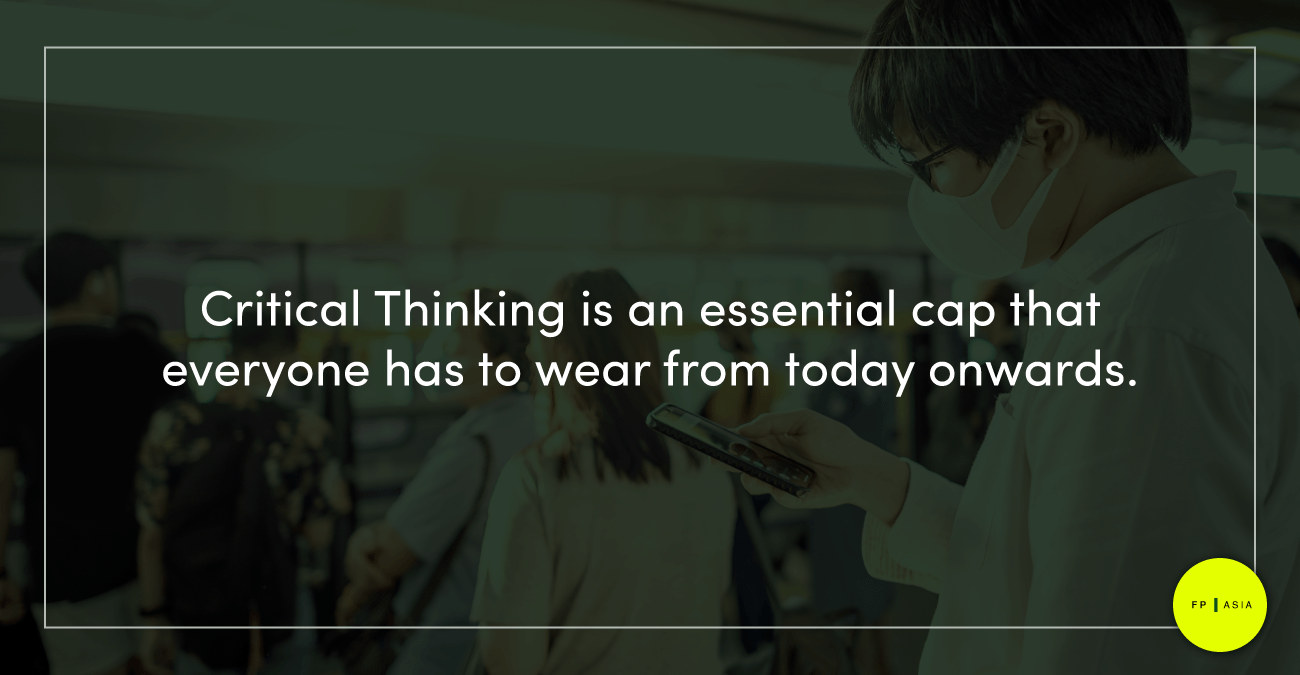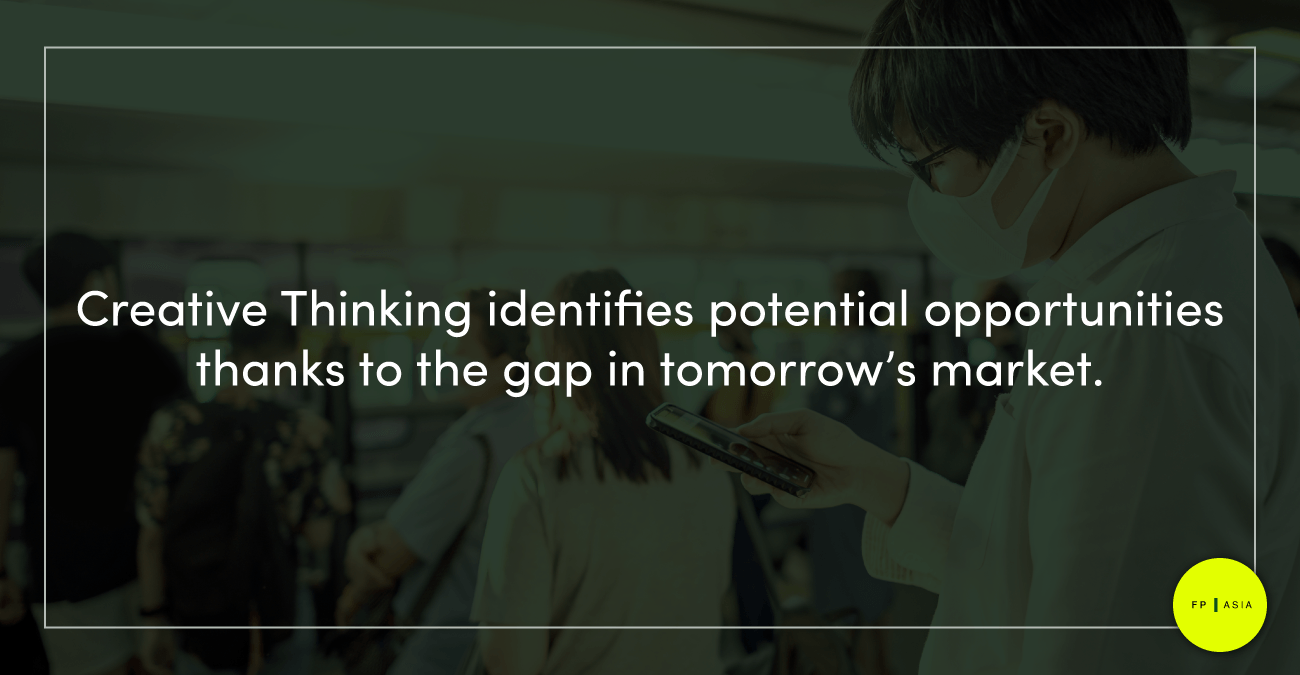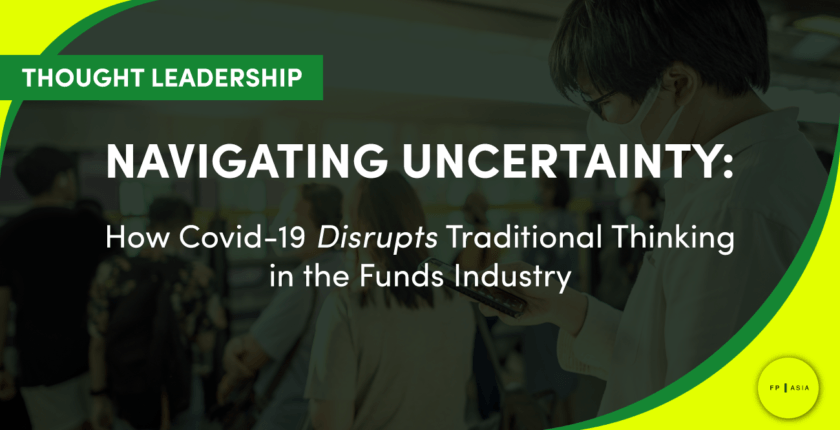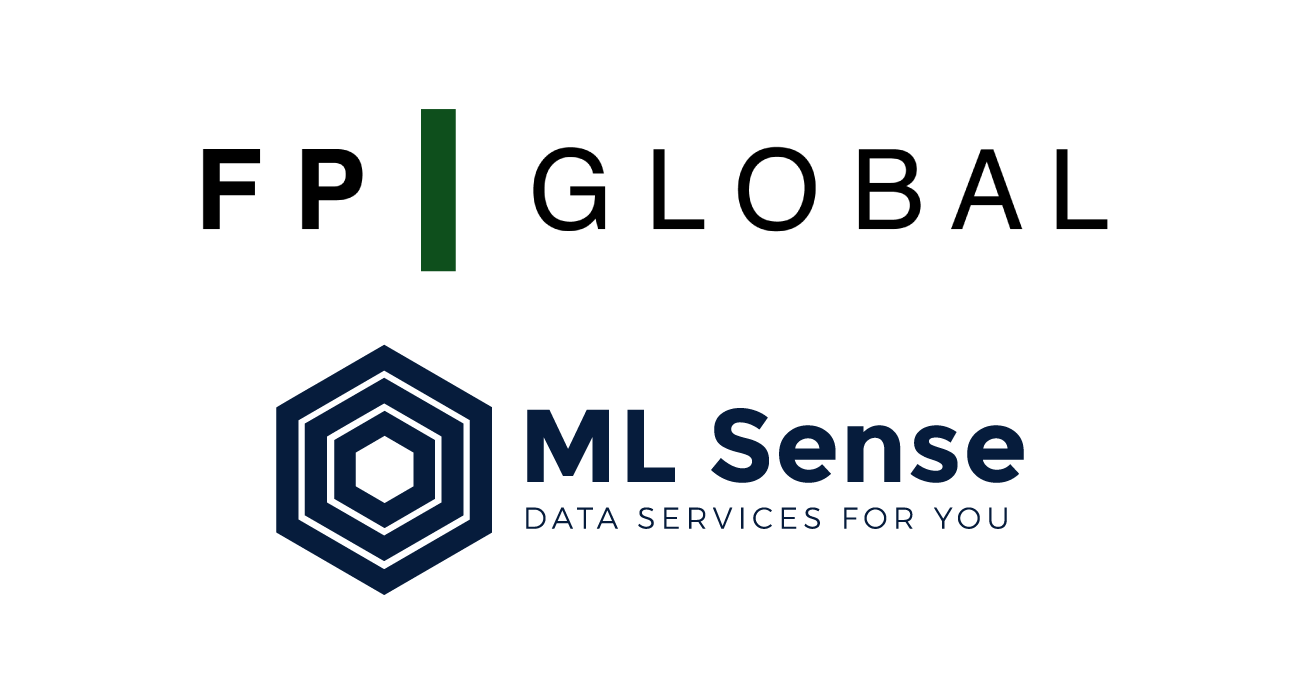Latest Insights
April 16, 2020
The world will always be vulnerable against any infectious diseases.
While our approach to tackling this pathogen has been modern, practically the only approach that has yielded the most effective results are rather primitive : temporary shut down of the global economy to halt the further spreading of the virus. How can we then navigate out of this uncertainty and start preparing for a more sustainable future? It simply boils down to 3 adaptations in our train of thoughts:
- Critical Thinking
- Creative Thinking
- Lateral Thinking

This crucial set of reasoning, analysis and solving today’s complex problems now goes beyond mere observance, assessment and reaction. In the name of social distancing, business leaders are forced to react and engage in the largest work-from-home (WFH) experiment, after all it is the right course of action to sustain the business and remove the possibility of infecting healthy staff.
However, critical thinking can go beyond doing the right thing and evolve into doing what is right for the business. Covid-19 has also forced many businesses into a state of digital transformation, adaptation and urgent implementation of Business Continuity Planning (BCP) processes to counter the uncertainties of tomorrow.
An example would be the gradual introduction of new working routines from team splits to a full remote-working situation which resulted in multiple benefits:
- Minimising in-person interaction
- Allowing their staff time to adjust to the new routines introduced
- Granting flexibility (to varying degrees) for staff to accomodate to new business needs.
Such measures were seen across the board from service providers such as fund administrators to large buy-side firms. Doing what is right is ensuring the safety of staff for businesses to continue operating. Doing what is right at an individual level, is to put in your best foot forward and accommodate to the new workflow processes and business environment.

We definitely can acknowledge that these are challenging times for the global economy but they are also windows of opportunities to move the industry forward in a new order of fashion.
Creative thinking is all about:
- Connecting the dots. It’s about exploring the connections, meeting a brand new problem and seeking out an unorthodox way of solving it too.
- Asking the right and relevant questions on how to sustain a business is a good starting point. These include: How can fund administrators still deliver to their fund managers and investors without compromising due to current circumstances? How can we build trust in our teammates to be equally (if not, almost) productive at home? How can we continue to strive for that business goal we have set before the impact of Covid-19? What can investors leverage on (or even who?) to knock out competition from seizing the investment of the year? What else can we, Funds Partnership Asia offer as a service to assist our clients, partners and ourselves in this bad situation?
Creative thinking is an unusual interpretation of the situation and it definitely includes some of the wildest ideas that act as catalysts to spark the dawn of a new era.

The most undervalued skill is lateral thinking, which is a combination of both critical and creative thinking to arrive at a logical and an unconventional approach to an unexpected, timeless predicament.
These include:
- Deriving alternative solutions from the present situation
- Having a focal point where many competitors have missed out on and improving on that one idea
- Challenging the perception of traditional thinking to mold new ideas and making a paradigm shift in the way of doing things.
A recent example was hearing one of our clients sharing about their current overhead costs of their staff and their reluctance to let them go just because of Covid-19’s impact on the business. They were in a dilemma: They needed that extra pair of hands during peak period but could not afford them in this climate. So we came in with a solution, risky enough to knock our main business model out of the picture, but it was always about putting our clients at the centre of what we do – impacting individuals and empowering economies. And we did it, all through a simple mobile application.
So how did this global pandemic disrupt our traditional thought process of dealing with human capital issues? Well, I encourage you to think about it.
Appendices
- https://www.sbf.org.sg/images/2020/02-Feb/COVID-19/Guide_on_Business_Continuity_Planning_for_COVID-19_2nd_Edition.pdf
- https://www.ey.com/en_sg/transactions/companies-can-reshape-results-and-plan-for-covid-19-recovery
- https://www.mooresingapore.com/news/april-2020/top-business-considerations-emerging-from-covid-19
- https://www.oliverwyman.com/content/dam/oliver-wyman/v2/publications/2020/apr/covid-19-and-fs-in%20china.pdf
- https://www.icaew.com/technical/financial-services/covid-19-and-financial-services
- https://www.euromoney.com/article/b1kxrvx42r38r6/can-banks-withstand-the-impact-of-covid-19
- https://www.pwc.com/us/en/library/covid-19/coronavirus-banking-and-capital-markets.html
- https://datacatalog.worldbank.org/dataset/covid-19-finance-sector-related-policy-responses
- https://www.oliverwyman.com/our-expertise/insights/2020/mar/covid-19-lessons-from-asia-and-italy.html
- https://www.bbc.com/future/article/20200325-covid-19-the-history-of-pandemics
- https://www.who.int/news-room/q-a-detail/q-a-coronaviruses
- https://home.kpmg/au/en/home/insights/2020/04/covid-19-coronavirus-digital-transformation-for-sme.html
- https://www.thehindubusinessline.com/catalyst/covid-19-could-be-an-accelerant-to-digital-transformation/article31238517.ece
- https://www.forbes.com/sites/colinseale/2020/04/10/the-case-for-critical-thinking-the-covid-19-pandemic-and-an-urgent-call-to-close-the-critical-thinking-gap-in-education/#886db9e7b72e
- https://bigthink.com/mind-brain/lateral-thinking?rebelltitem=3#rebelltitem3
- https://thepeakperformancecenter.com/educational-learning/thinking/types-of-thinking-2/lateral-thinking/lateral-thinking-techniques/
- https://www.edwddebono.com/lateral-thinking
Share This Article
Articles You May Like















